Close UP
Pathways Japan ~Supporting the Future Pathways of Young Refugees and Young Displaced People Through Assistance from Citizens~
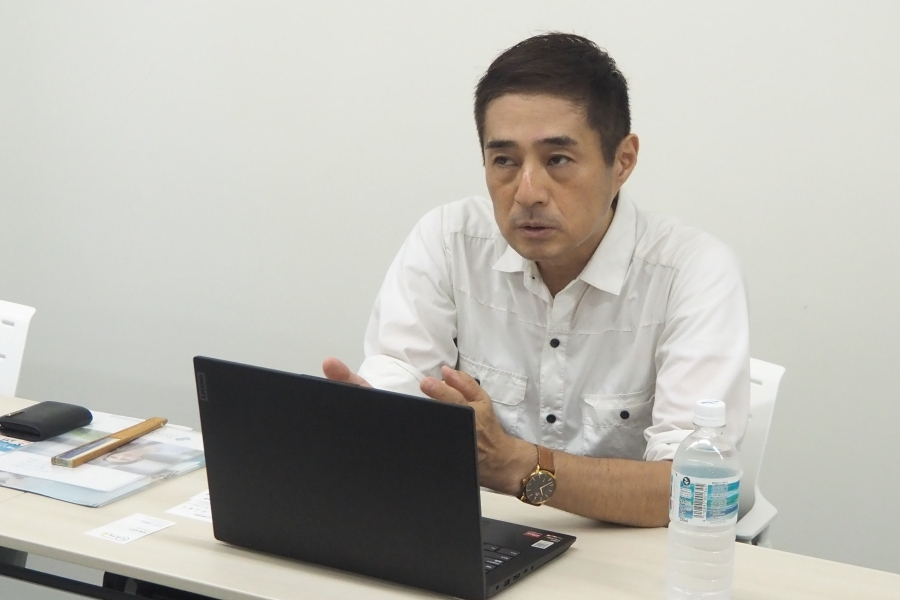
The Public Interest Foundation Pathways Japan has supported over 200 refugees and displaced persons since its establishment in 2021. Pathways Japan welcomes young refugees and displaced persons who have been forced to leave their homes due to war or human rights violations, providing Japanese language education and support for further education and employment. We interviewed Mr. Norimasa Orii, the representative director of Pathways Japan, who is dedicated to helping each young person forge their own pathway toward the future.
Seeking Ways to Contribute Led by Civil Society in Japan, Where Refugee Recognition Rates Are Low
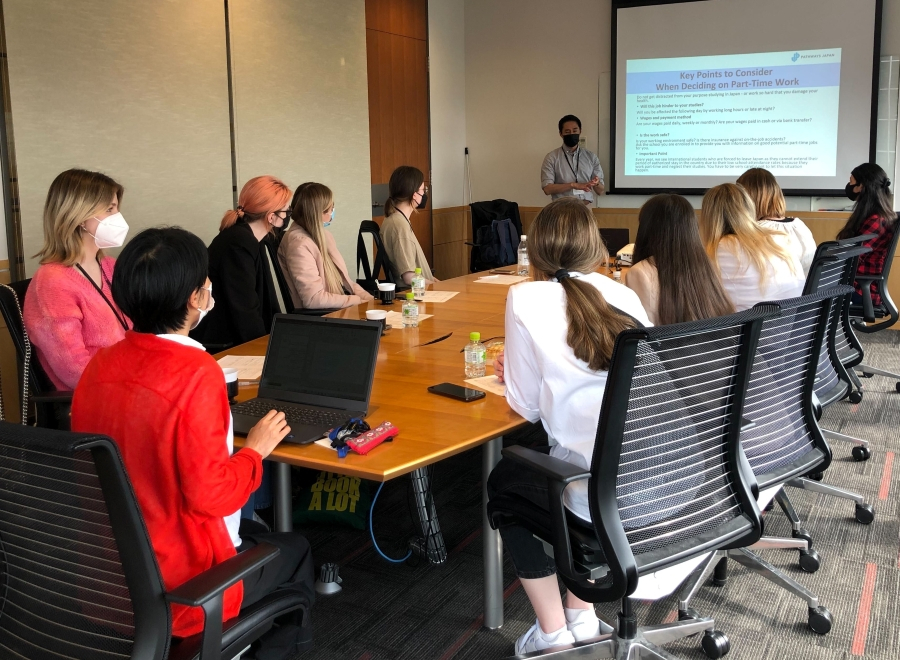
Photo Courtesy: Pathways Japan
Pathways Japan was launched as a project of the Japan Association for Refugees in response to the 2015 refugee crisis, when millions of people became refugees due to the intensifying Syrian civil war.
“While countries around the world debated how to admit refugees, Japan was in a period where the number of refugee recognitions was in the double digits annually - the lowest number of recognitions (in its history of accepting refugees). As we explored ways for civil society to contribute, we found Canada’s Private Sponsorship of Refugees Program - a program that collaborates between the private sector and the government, to admit large numbers of refugees - to be a useful reference point. To establish a Japanese version of this program, we sent our staff to Canada from the Japan Association for Refugees, to learn about refugee resettlement,” says Mr. Orii, the representative director.
Mr. Orii himself began supporting refugees in Afghanistan the year after the September 11 attacks, and had since continued providing refugee assistance in Iraq, Myanmar, Palestine, and other regions.
“The refugee crisis is a challenge that must be resolved globally. Japan still admits far fewer refugees than other developed nations, and I believe this is an area where Japanese society can contribute more.”
The term “Pathways” is said to be the expression used by the United Nations when standardizing the privately led refugee resettlement programs that advanced in various countries around 2015 to 2017. This organization was named “Pathways Japan” with the hope of creating “pathways” for refugees to come to Japan, and “pathways” for young people deprived of educational opportunities caused by war, to move toward their future.
Supporting Young People Who Have Been Forced to Flee Their Homeland and Become Refugees or Displaced Persons, so They Can Seize Opportunities to Forge Their Own Futures in Japan
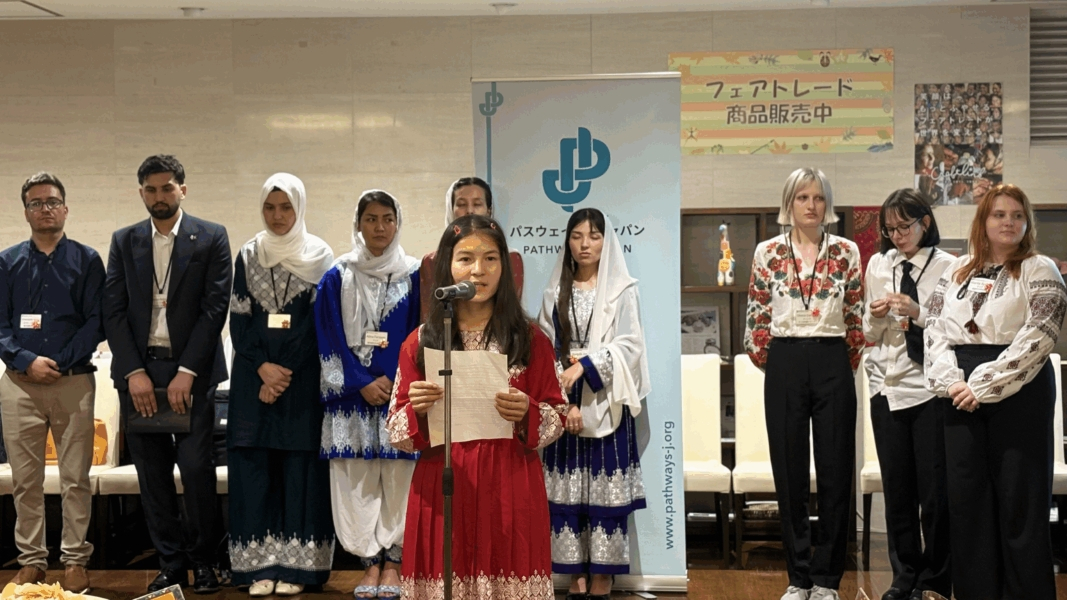 An Afghan student who came to Japan in March 2025. In Afghanistan, women are prohibited from receiving education and are increasingly seeking higher education in Japan.
An Afghan student who came to Japan in March 2025. In Afghanistan, women are prohibited from receiving education and are increasingly seeking higher education in Japan.Photo Courtesy: Pathways Japan
Pathways Japan provides Japanese language education opportunities and assistance with university admission - as well as employment - to help young refugees and displaced persons who have been forced to flee their homelands build their futures in Japan. Refugees and displaced persons admitted by Pathways Japan, as an organization, receive online Japanese language education before they arrive in Japan. After arriving in Japan, they undergo orientation and then attend Japanese language schools while supporting themselves through part-time work; aiming to pursue university studies or employment. The organization annually admits approximately 20 refugees and displaced persons from Syria, Afghanistan, and Ukraine. In 2022, it admitted approximately 100 evacuees from Ukraine. Pathways Japan admits refugees and displaced persons aged 17 to 33 into its programs. Regarding the gender ratio, the situation varies by country: Syria has a higher proportion of males, while Afghanistan and Ukraine have a higher proportion of females.
“In Syria, relatively few families consider sending only their female family members to study abroad at universities. Meanwhile, in Afghanistan, where women’s education and employment are prohibited, an increasing number of young people hope to come to Japan to continue their education. Regarding Ukraine, where it is difficult for men to leave the country during wartime, the current situation is affecting the number of refugees admitted,” says Mr. Orii.
Many people had studied Japanese at university before coming to Japan, or had learned Japanese through YouTube and apps, because they were passionate about Japanese anime and literature. “There are many people who became interested in Japan because of anime. Also, many people are interested in a wide range of Japanese cultural topics, including young adult novels, J-POP, and classic literature like Osamu Dazai, Ryunosuke Akutagawa, and Haruki Murakami,” says Mr. Orii.
Providing Ongoing Support to Young People Until They Can Establish Self-reliance in Japan
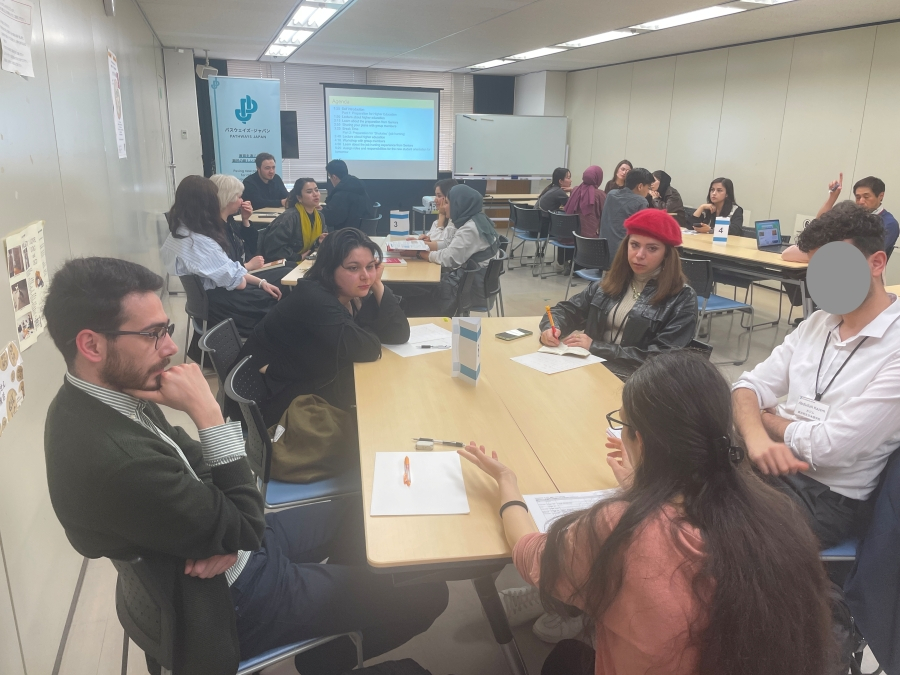 Student Reunion Day is an event that brings together students who have been admitted into the program. At the event, participants exchange information, sharing experiences from those who arrived in Japan earlier with those who came later, and discussing questions and concerns with one another: transcending their countries of origin.
Student Reunion Day is an event that brings together students who have been admitted into the program. At the event, participants exchange information, sharing experiences from those who arrived in Japan earlier with those who came later, and discussing questions and concerns with one another: transcending their countries of origin.Photo Courtesy: Pathways Japan
“We believe our responsibility doesn’t end when we admit (refugees into our support system). We see it as our duty to accompany them until they secure employment and achieve economic self-reliance. We strive to provide personalized support to each individual,” says Mr. Orii. Young refugees and displaced persons have come to Japan after enduring tremendous hardships. Mental health support is also crucial. Young people who come to Japan tend to become isolated and lose their mental balance if they cannot build good relationships with those around them. Pathways Japan works to prevent isolation in students who come to Japan, by building communities for students and alumni, and by providing opportunities to connect with local communities. The organization also actively collaborates with Japanese language schools, universities, medical organizations, and local psychiatric clinics.
At the orientation sessions admitted students attend after arriving in Japan, program graduates serve as instructors. These instructors provide practical support, covering topics such as the importance of time management in daily life in Japan, how to manage finances, and practice for job interviews. The orientation not only features real-life experiences shared by program graduates but also serves as an opportunity for young people with shared backgrounds as refugees and displaced persons to connect.
Part-time jobs for young refugees and displaced persons start with factory work, dishwashing in restaurants, and making beds in hotels. Then, based on their Japanese proficiency level, they step up to jobs such as convenience store clerks or hotel front desk staff, where communication in Japanese is required. “Part-time work experience not only enables them to earn their own living expenses but also builds their confidence in Japanese-language communication. They can also learn skills essential for employment, such as talking about themselves in a job interview and being punctual,” says Mr. Orii.
Providing Scholarships to Support Young People Who Overcome the Difficult Experience of Becoming Refugees or Displaced Persons and Strive to Continue Their Education
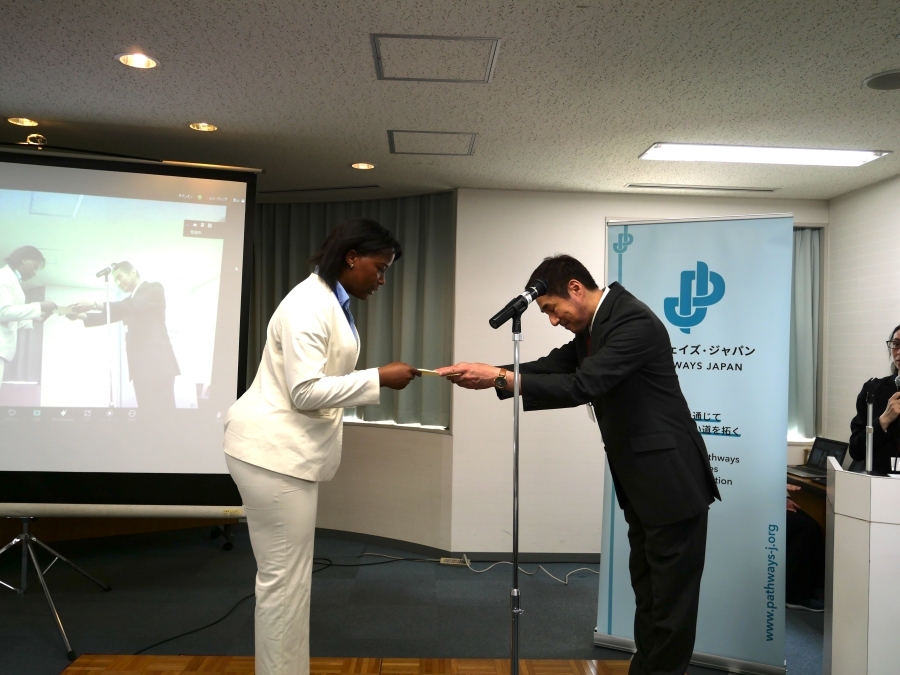 A scene from a scholarship award ceremony. Each scholarship recipient gave a speech about their experiences and aspirations for the future.
A scene from a scholarship award ceremony. Each scholarship recipient gave a speech about their experiences and aspirations for the future.Photo Courtesy: Pathways Japan
Pathways Japan also provides scholarships to support young people with refugee or displaced backgrounds in their pursuit of higher education. The Toshizo Watanabe International Scholarship is a program founded through the donation of Mr. Toshizo Watanabe, who himself studied in the United States on a scholarship and went on to achieve business success. This program awards grants to approximately 15 to 20 young people with refugee or displaced backgrounds each year, providing support for tuition and living expenses. Selected scholarship recipients will choose and enroll in junior colleges, undergraduate programs, or graduate schools in their desired fields of study.
The rate of enrollment in higher education among people with refugee or displaced backgrounds, which has been increasing in recent years, stands at 7% worldwide (as of 2023), significantly lower than that of the general youth population. Through the Toshizo Watanabe International Scholarship, young people who previously had limited opportunities to apply for scholarships in Japan are now able to continue their studies despite overcoming the difficult experience of becoming refugees or displaced persons.
“I hope scholarship recipients will pursue higher education not merely for the sake of learning, but also in considering how their studies and research will connect to their careers and how they will contribute to society in the future.”
Working to Ensure That Young People's Pathways to the Future Remain Open and Continue to Expand
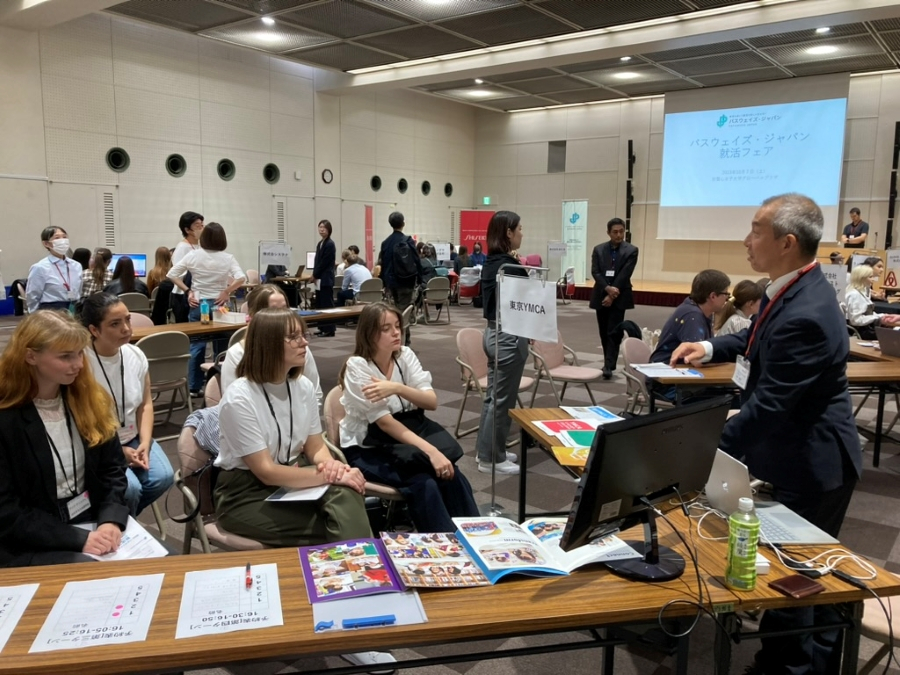 Pathways Japan hosts events such as a job-hunting seminar for refugee and displaced students, to help companies and students get to know each other.
Pathways Japan hosts events such as a job-hunting seminar for refugee and displaced students, to help companies and students get to know each other.Photo Courtesy: Pathways Japan
Students with a background as a refugee or a displaced person find employment in a wide range of fields, primarily in IT companies, as well as media-related fields, translation, human resources, and more. A key challenge during their job search is Japan’s unique job-hunting culture.
“In Japan, job hunting begins in the third year of university. However, Japan’s employment system is quite complicated for students from overseas. Even when we explain it beforehand, some people still don’t feel the need to start job hunting early. For them, there’s the difficulty of having to decide their future while also holding onto the hope that they might be able to return home someday,” says Mr. Orii.
This organization provides opportunities such as job-hunting seminars for refugees and displaced persons, and networking events where companies and students can get to know each other.
“Many companies require students to have passed the Japanese Language Proficiency Test (JLPT) at the N1 or N2 level as a hiring requirement. However, many students can speak Japanese fluently even without holding an N1 or N2 certificate. On the other hand, some students who have passed N1 or N2 still struggle with conversation. I feel the need to encourage companies to better understand how to measure Japanese language proficiency. We hope that through networking events and other opportunities, companies can actually meet and talk with students, and find out about their skills and experience.”
Four years after the organization was founded, Mr. Orii spoke about its future activities as follows.
“As we’ve continued our activities, the number of students we’ve hosted - and program graduates - has grown, and we believe our community has gained the capacity to accomplish more. We would like to leverage program graduates’ expertise to improve the program, and we are also exploring ways to expand opportunities to individuals from countries not currently eligible for the program.”
The pathways to the future for young people with diverse potential, supported by Pathways Japan, continue to expand.
